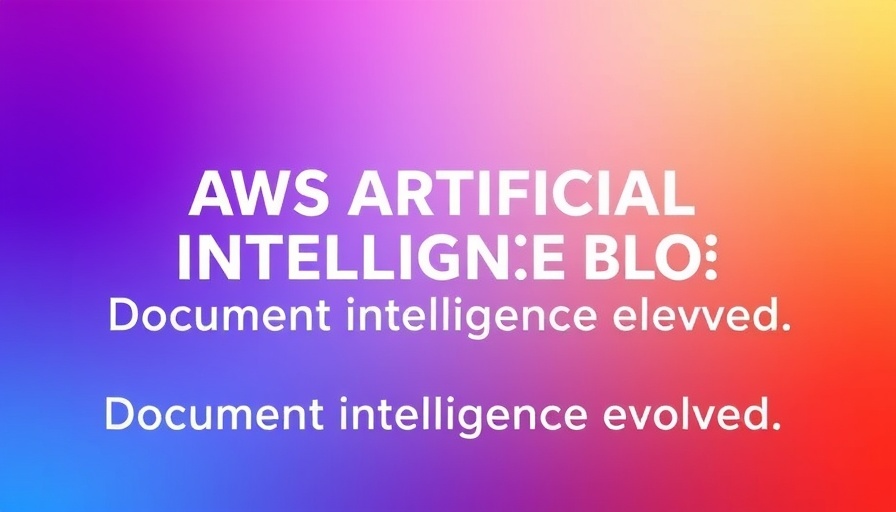
Revolutionizing Document Processing Through Intelligent Automation
In an era where digital transformation is no longer optional, the evolution of Intelligent Document Processing (IDP) is reshaping how businesses handle their documentation workloads. Key Information Extraction (KIE) systems form the backbone of IDP, enabling companies to efficiently sift through vast amounts of paperwork—whether it's invoices, contracts, or medical records. By leveraging advanced artificial intelligence, businesses across financial services, healthcare, legal, and supply chain management sectors are realizing a significant reduction in manual data entry. This automation not only streamlines operations but also enhances speed and accuracy, making it a strategic necessity in today's competitive landscape.
Scaling Challenges and Effective Solutions
As the volume of documents increases exponentially, organizations face the pressing challenge of not only automating processes but also ensuring they do so at scale. The ability of AI systems to analyze extracted data and initiate actions autonomously—with minimal human intervention—is becoming crucial. This necessity drives organizations to adopt robust KIE solutions. However, implementing these systems isn't without its hurdles. The initial understanding and preparation of documents can be complex, demanding an effective framework that addresses specific industry needs. For instance, extracting meaningful data points from varied document formats—especially when these documents are structurally inconsistent—requires tailored approaches and advanced evaluation metrics.
Case Study: The FATURA Dataset as a Benchmark
A practical illustration of robust KIE implementation is exemplified through the FATURA dataset, which serves as a representative model for evaluating document processing capabilities. With 10,000 invoices featuring 50 distinct layouts, organizations are provided an ideal context in which to test and refine their KIE solutions. The challenges presented by the dataset—such as structural discrepancies and varying value formats—illustrate the need for comprehensive standardization efforts in data labeling. Addressing these variations ensures consistent and accurate performance evaluation, ultimately improving the reliability of the automation process.
Future Trends: The Need for Tailored KIE Solutions
Looking forward, the significance of developing tailored KIE solutions that align with specific business contexts is paramount. Companies are expected to prioritize the integration of evaluation frameworks that not only optimize extraction accuracy but also enhance processing efficiency. Adopting such focused strategies will empower organizations to move past traditional, manual document handling towards a future of heightened operational efficiency. As decision-makers ponder the potential of AI in driving transformation within their enterprises, it is critical to grasp the value of KIE as a gateway to maximizing productivity and achieving sustainable growth.
Actionable Insights for Executives
For CEOs, CMOs, and COOs contemplating the leap into AI-driven automation, the journey begins with understanding the potential of KIE solutions. Insights gathered from contemporary datasets like FATURA should guide the development of evaluation metrics that align with specific organizational goals and document processing intricacies. As organizations redefine their operational strategies through IDP, fostering a culture of continuous learning and adaptability will be essential. Reflecting on these trends, business leaders should actively seek to integrate advanced document intelligence solutions into their workflows, thereby unleashing their organization's full potential.
Taking decisive action towards integrating these innovative technologies can redefine operational capabilities, catalyzing a transformation that could sustain long-term competitive advantage.
 Add Row
Add Row  Add
Add 




Write A Comment